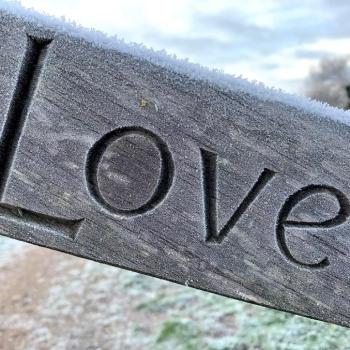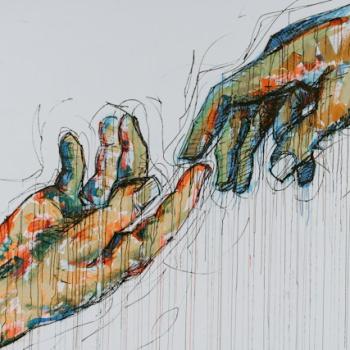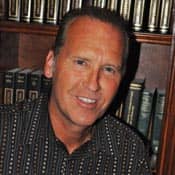The late Charles Colson experienced two significant events in the year 2000. First, he received the Gold Medallion Book Award for his 1999 release, How Shall We Now Live? Second, Governor Jeb Bush of Florida reinstated the rights he lost during his 1974 felony conviction, including the right to vote. While his first 42 years of life earned him the moniker of "Nixon's hatchet man," the last 38 years were marked by his highly effective ministry to prisoners for the cause of Christ. In between these two periods came a life-changing conversion described in his bestselling book Born Again (1976).
Colson, who passed away on Saturday, April 21, from complications related to surgery for a blood clot on his brain, lived a life of extensive irony and paradox. On one hand, he experienced his most humiliating setback in his most prestigious post, while working in a White House office as Special Counsel to the President. On the other hand, he found his highest sense of calling amidst his most humiliating place in life, as Prisoner 23226 at Maxwell Correctional Facility in Alabama.
After working his way to the White House, Colson was implicated in the Nixon Watergate scandal. While serving seven months after a guilty plea, he became intrigued with the idea of helping prisoners and improving prison conditions. He spent the rest of his life doing so through the organization he founded, Prison Fellowship.
One of the President's Men
Colson was but one of "all the president's men" in the Nixon administration, but he held great influence. By his own admission, during that dark period of his life, he and Nixon brought the worst out in each other. Jonathan Aitken, the author of the 1996 biography Nixon: A Life, wrote, "Nixon and Colson could hot one another up to the most feverish of bouts of plotting and scheming." Colson confirmed this when he later said, "Those who said that I fed the president's dark instincts are only 50 percent correct, because 50 percent of the time he was feeding my darker instincts." The paranoiac power shared by the two led to Colson drafting a 1971 memo that came to be called the President's Enemies List and to the now-legendary dysfunctional organizational culture of the Nixon White House.
Amidst the heat of the unfolding Watergate cover-up, Colson resigned his position at the White House on March 10, 1973. He was indicted almost one year later for conspiring to cover up the Watergate burglary.
Five months after resigning his government post, Colson made contact with Tom Phillips, chief executive at Raytheon and also a new professing Christian. Colson clearly had one item on his agenda for this meeting—lining up some potential legal work with his company. Phillips, however, noted another kind of "opportunity" in the meeting, a chance to share Christ with someone he felt was in deep spiritual need. He actually read some quotes to Colson from C.S. Lewis' Mere Christianity and asked if he could pray with him.
The passages Phillips read from the book were on the subject of pride, something Lewis refers to as "The Great Sin." It caught Colson's attention and made him uncomfortable. At first, he thought of Phillip's faith as "pure Pollyanna." Because he had always shied away from anything smacking of religion, Colson struggled with the idea but awkwardly agreed to Phillips praying, saying, "Sure—I guess I would—fine."
"Open Chuck's heart and show him the light and the way." This was what Tom Phillips remembers praying that day. During the prayer, Colson would later admit that he felt the movement of God's Spirit within his soul, but could not bring himself in those moments to surrender to Christ. Later that night, however, when he was alone, sitting in the car "outside in the dark, the iron grip I'd kept on my emotions began to relax. Tears welled up in my eyes . . . and suddenly I knew I had to go back into the house and pray with Tom."
Since Phillips had already gone to bed, Colson wept and offered his own prayer as he gripped the wheel of his car that night in front of his house. Climbing into bed later that evening, he told his wife Patty that he felt he had undergone some kind of conversion experience but did not understand it all.
The next year in Colson life would bring many changes. While his enemies encircled him and he faced the threat of disbarment, public humiliation, fines and imprisonment, Phillips and other newfound Christian friends embraced him with spiritual support and discipleship. The always-capable Colson found himself in desperate need of God, of friends and of help.
From Convert to Prisoner
Colson's sharp mind and troubled soul attached themselves quickly to learning the Bible and embracing the friendship of other believers. He had an almost insatiable appetite for learning Christian truth and theology. The early theological influencers on his life included Nicholas Wolterstoff, R.C. Sproul, Carl Henry, Francis Schaeffer, and Richard Lovelace. He also came to greatly admire the example of William Wilberforce's work in England and soon committed himself to the cultivation of a true Christian worldview and to engaging it boldly in life and society.





